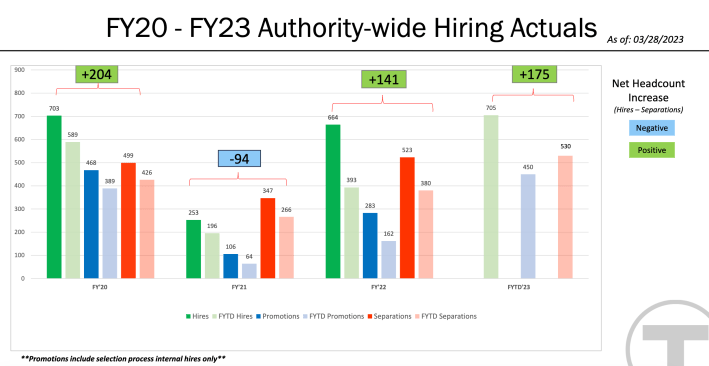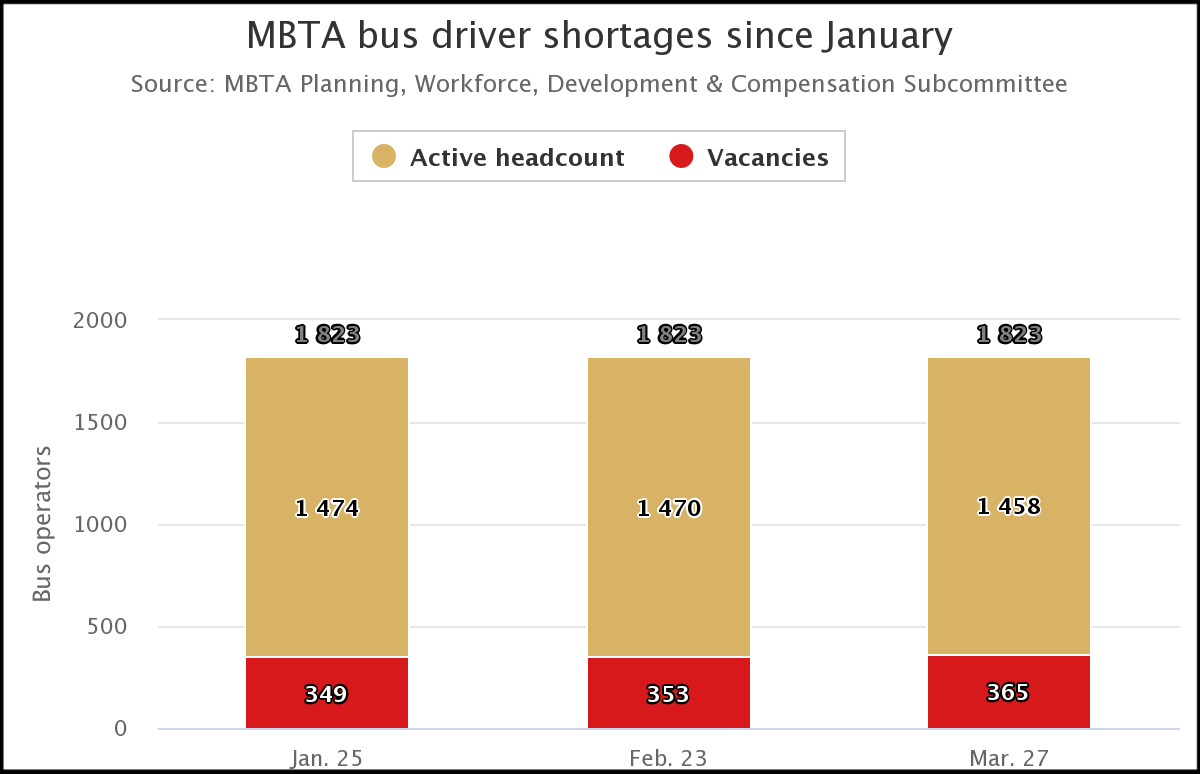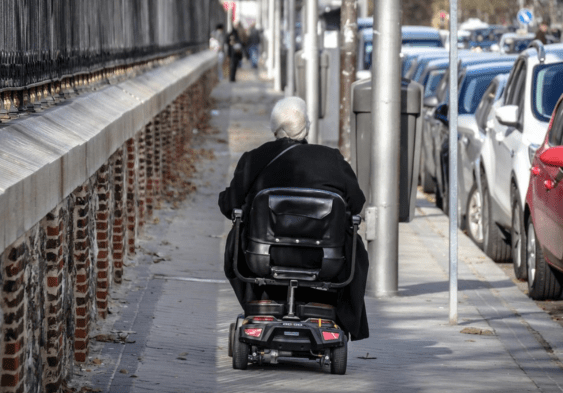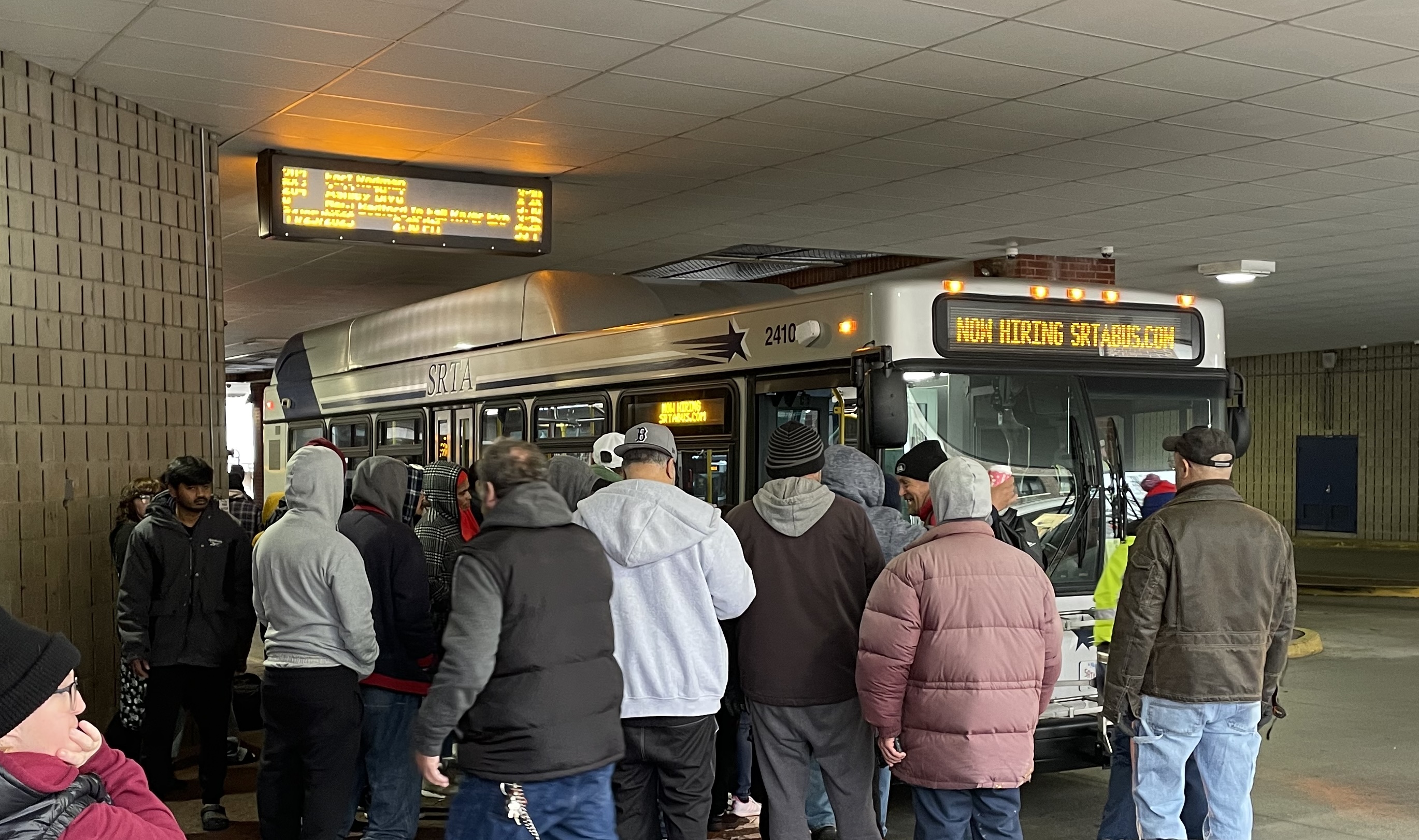The MBTA's roster of bus drivers continues to dwindle in spite of renewed recruitment efforts and successful hiring for other positions, according to hiring data presented at today's Planning, Workforce, Development & Compensation Subcommittee of the MBTA board of directors.
The MBTA currently has 365 vacant bus operator positions and 1,458 active bus operators as of March 27, 2023. That means that one in five of the T's budgeted bus operator positions are currently vacant.
The T has been offering $4,500 sign-on bonuses and paid commercial drivers license trainings for potential new drivers since the beginning of the year.
But the numbers show that those recruitment efforts continue to be insufficient: when we last reported on this story in January, the number of vacant bus driver positions at the T was 350.
At Thursday's board meeting, Tom Waye, the T's Chief Human Resources Officer, said that the T will soon offer even more generous sign-on bonuses for new drivers.
"We've also done a lot of work as relates to the retention and attraction of these roles," said Waye. "We've increased the bus operator training rate from $16.66 to $22.21 an hour. We've also offered, in the past, a $4,500 sign-on bonus, and effective on April 15, we'll be moving that to $7,500."
Waye also said that the T was starting to address one of the bigger hassles for new drivers: new drivers are limited to working only 30 hours per week, a rule that both reduces drivers' take-home pay, and also reduces the number of drivers who are available to operate bus service on any given day.
"We have also reduced the time for individuals moving from part-time to full-time. That's moved from a 6-month scale to a 3-month scale," said Waye.
As reported by Taylor Dolven in the Boston Globe last weekend, most of the T's peer agencies hire new drivers as full-time workers, and all but SEPTA in Philadelphia (which has a lower cost of living) offer a higher starting wage for new drivers.
According to Waye's presentation, the T currently has 67 new drivers in training programs.
The MBTA is also hiring for hundreds of other positions, and in other parts of the agency, its human resources department has been more successful.
Waye noted that the T is making progress in staffing up its heavy rail Operations Control Center (OCC), where last year's Federal Transit Administration safety audit warned that inadequate staffing levels were forcing dispatchers to work long, exhausting shifts.
"Our plan is to get to a 32 dispatcher goal, which would have them fully-staffed," said Waye. "We currently have 26 active dispatchers, which includes 5 spares."
In all, the T has hired over 700 new employees in the current fiscal year – the most new hires the agency has had since the pandemic began.
But the agency has also seen an unusually high rate of employee attrition this year: 530 employees have retired, quit, or been fired since July 1.







